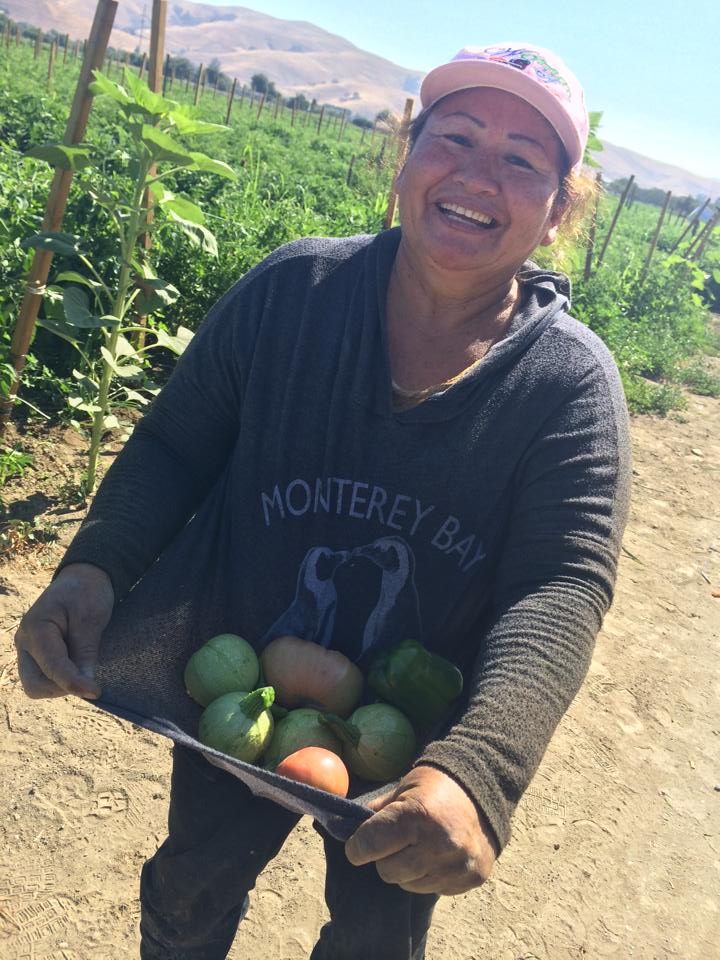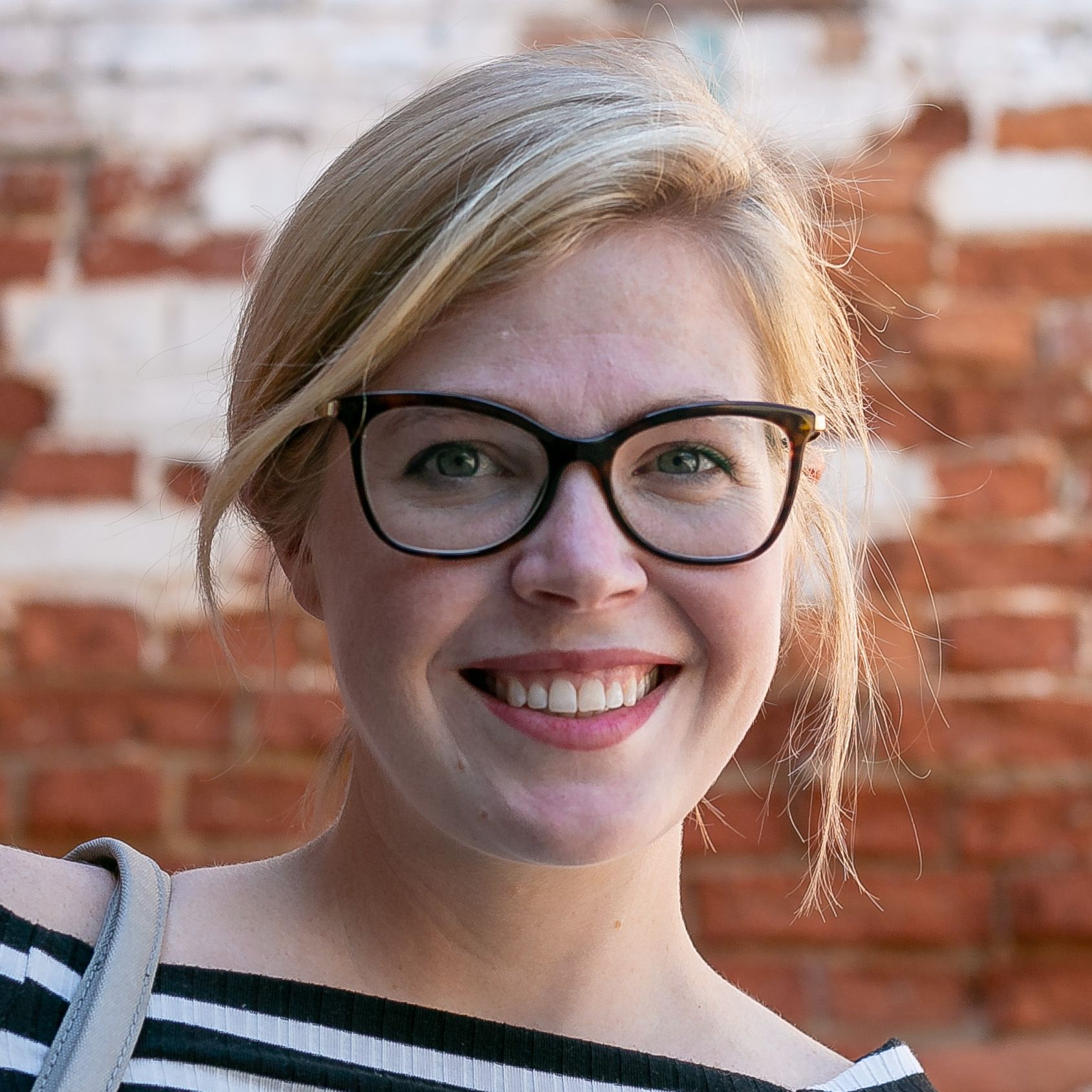Maria Catalan immigrated to the United States from Mexico in 1988 and began farming, following in the footsteps of her father and grandfather. Three decades later, she’s the owner of Catalan Family Farms and a mentor and role model for other immigrant farmers in the U.S.
After training with ALBA, a rural development center in Salinas, California, Maria started selling produce in her first year. She faced challenges early on, including a language barrier, a male-dominated industry, and lack of startup capital. (She cleaned the center’s offices to pay her rent.)
Maria persevered and built Catalan Family Farms into a 48-acre farm, but in 2014, her well collapsed, forcing her to give up the land. Now, she’s starting all over again, leasing a new 20-acre plot.
To succeed in the farming business, Maria has focused on what sells – ingredients that are economically practical for her to grow, like tomatoes, carrots, onions, and radishes. She learned how to farm organically so she could get a better price for her products. She also shares resources and knowledge to help build a sustainable future for other small farms, pushing the whole industry forward.
Key to her approach are sustainability and education. Here’s how she prioritizes each to achieve self-sufficiency for her family and her community.

Fostering a Sustainable Community
When it comes to achieving self-sufficiency, Maria leads by example. Her goal is for the community to be able to support itself even in the face of unexpected obstacles and challenges. To keep her business diversified and healthy, she builds relationships with a few different types of buyers.
Brokers: In the beginning, Catalan Family Farms planted crops for brokers, who represented the largest percentage of their business. Brokers told them what to grow, and Maria responded accordingly. But that system also led to waste. “There were times when they told me to plant a half-acre of fennel, but when it was ready, they said there wasn’t demand and wouldn’t buy it,” she says. “And we don’t eat fennel.” From there, she started to plant ingredients the family could eat in case they didn’t sell – onions, carrots, and cilantro, for example.
Restaurants: The Catalan team connected with chefs early on at the farmers’ market, and over time their client base grew to about 20 locations, including San Francisco’s Greens, Liholiho Yacht Club, Nopa, and Nopalito. “Because the restaurants supported us, we try to have their product ready,” says Maria. Still, she adds, “they always want to get the best deal and also beautiful quality.” They only work with chef customers who are willing to pay a fair price for their product.
Grocery: Maria’s first grocery customer was the Whole Foods Market in Monterey, California – but the business didn’t come easily. Maria saw that the stores wouldn’t buy from a single person, so she formed a co-op with her fellow ALBA students. Together, the co-op began selling to Whole Foods, and now Catalan Family Farms work with multiple grocery stores.
Direct to Consumer: Catalan Family Farms has offered CSAs since the beginning, but they stopped participating in farmers’ markets after the markets became too saturated and costs untenable. Now, Maria sees that the market system is changing, with more consumers turning to delivery services. To capture that demand, she’s starting a company that will deliver grains, fresh fruits, vegetables, and eggs to people’s homes. By adapting to consumers’ changing needs, she ensures that her family business stays relevant and thriving.
Paving the Way Forward Through Education
After decades of farming, Maria’s passion has shifted. Today, she aims to teach others in her community how to grow. “There's so much money that the government brings for agriculture, but the small farmer doesn’t get any of it because the resources are not there,” she explains. Her programs make those resources available for all farmers, so that “in case something really bad happens, the community can support itself.”
Farmer Training: After Maria started farming organically, other farmers asked her how to get their crops certified. To help them, she certified the farms under her name so that they could see what the process entailed. No Spanish-language resources existed. Even though Maria didn’t speak English, she did know the certification process, and she knew how to help farmers gain more profits for their product. “She’s always been helping people,” says Juan.
Translation Services: Since then, Maria started a nonprofit to help small farmers gain access to the Spanish-language resources they need to be successful. Translation services are critical because in Hollister, some communities don’t speak Spanish or English but other languages from Mexico. “If the ag commissioner didn’t have translated forms, we could hire somebody to translate it for them,” says Juan. They would invite small farmers to gather and fill out the census, helping them with translation so that everyone would be counted. “We get counted, and more resources come to the community,” says Juan.
Farm Visits: Maria and Juan host buyers at the farm, where they can see the work first-hand and gain a better understanding of where their food comes from. They have also hosted classes of school children to teach them about farming. Finally, Maria hosts people who don’t have the money to come for a visit but want to understand the farming process. People will help out on the farm, weeding and harvesting for the market or CSA, and in exchange gain visibility into the work.
As Maria’s son Juan explains, Maria’s goal and passion is to leave a legacy of self-sufficiency and sustainability for her grandchildren and great-grandchildren.
Photos courtesy of Catalan Family Farms

 Olivia Terenzio
Olivia Terenzio